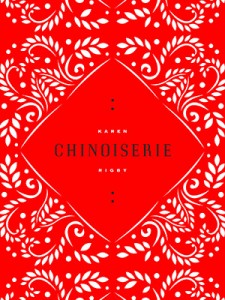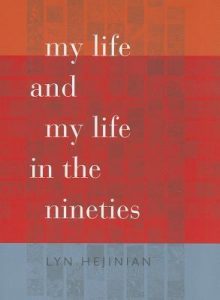The world is full of strangers—people we’ll never know and those we once knew but will never see again. I come from a small town in northern Idaho and there I left behind so many former friends who are strangers to me now. Reading the poignant poems in Pacific Walkers by Nance Van Winckel, I began to wonder if I knew any of those Jane and John Does—if any of the friends who are lost to me have also been lost to the world.
You see, Van Winckel pulls her inspiration for many of the poems in this book from the records of the Spokane County Medical Examiner’s Office—a place not very far from where I grew up. She also gives life and stories to the people in old photographs. Van Winckel is humanizing what we have all left behind and some of the writing in this book is simply stunning.
Anonymity
“the question won’t pertain to tattoos
or unmatchable DNA, but to what
world, under what sun, in what situwe go on finding each you, each you,
the not-missed, the never missing.”– Nance Van Winckel, “Last Address”
I felt weird writing “left behind” above, but the word I really wanted to use was “detritus” and that felt worse. We’re talking about, and Van Winckel is writing about, human lives—a man found dead in a landfill, another in a railroad tunnel a premature baby girl found at a water treatment plant—and these are the lives of people we’ve left behind, who might never be claimed. People who are missed in some absent part of our brains that wonders only occasionally “What ever happened to…?”
And that’s part of the point, of course, of writing this book. That part of the experience of reading this book struck me so hard that I couldn’t even write about it for a week. Van Winckel touched on things I did not want to think about. I can barely leaf through old photo albums at the Salvation Army because I find the discarded memories so sad. Here she gives full stories to those people. The language is restrained, as it should be, and Van Winckel leaves me to sit in this uncomfortable place of wondering what’s happened to those I left behind.
The Detritus of my Life
“you were all the world I had to leave” – Nance Van Winckel, “Afraid of My Rays, No One Comes Near”
I remember a boy in junior high. I thought he was the cutest. I never dated him—I was dating other people and he never seemed to notice me—but I always knew when he was near. He didn’t have a lot of money and so he wore the same jacket for all the years from junior high through high school—not that I think he graduated—so it was easy to catch a glimpse of him on a street corner. I don’t know his first or last name—I only have his nickname and a hazy memory of where he lived. I know he got hard into drugs like a lot of his crowd did. And Spokane would have been a natural place for him to end up.
As I was reading this book, it was this boy I kept thinking of. When Van Winckel placed descriptions from the coroner’s office near the poems, I read them extra hard to see if any were him. I hoped they weren’t, but I wouldn’t have been surprised. There were others who were acting as lost as he was at the time, but they had bigger personalities and people to catch them. This boy, I don’t know… I hope he’s out there somewhere living a happy life surrounded by people who love him.
Poetry for Strangers
“Taped into the space
Where a window had been,
that newspaper: it must
be scanned… each day
another fact aglow
with sunlight,
each night the same war.” – Nance Van Winckel, “Compromised State”
So I want to tell you more about the language and form in Pacific Walkers, but I can’t. Maybe the level it affected me on says it all.
This weekend Rebecca Bridge and I are putting the finishing touches on our book of writing prompts and one of the things we suggest is taking a photograph and making it into a story. If our readers do have as well with that exercise as Van Winckel, they’ll be in great shape. My cousin Elisabeth finds inspiration in strangers every week and pulls it together into Poetry for Strangers.
Perhaps writing is a way we can catch people who might otherwise fall away.
“By May / I’m a dashed-off note with promises / of more where this one came from.” – Nance Van Winckel, “I Am My Own Assistant”
If you want to connect with the people in this book or to actually see what the writing is like, pick up a copy of Pacific Walkers from Bookshop.org. Your purchase keeps indie booksellers in business and I receive a commission.

 A couple of weeks ago, I was talking with a friend about our mutual interest in Buddhism. She recommended I read Radical Acceptance: Embracing Your Life With the Heart of a Buddha and I asked if she’d read the works of Thích Nhất Hạnh. We agreed that neither of us really understood him, but I said what I like most about his work is precisely that I don’t understand it and that every time I re-read one of his books, I take from it what I need that day, regardless of what’s on the page. That’s how I felt reading My Life and My Life in the Nineties by Lyn Hejinian.
A couple of weeks ago, I was talking with a friend about our mutual interest in Buddhism. She recommended I read Radical Acceptance: Embracing Your Life With the Heart of a Buddha and I asked if she’d read the works of Thích Nhất Hạnh. We agreed that neither of us really understood him, but I said what I like most about his work is precisely that I don’t understand it and that every time I re-read one of his books, I take from it what I need that day, regardless of what’s on the page. That’s how I felt reading My Life and My Life in the Nineties by Lyn Hejinian. I was offered Barbara Bogoczek’s translation of Mother Departs by Tadeusz Różewicz for review I think because of my interest in Poland and, of late, Polish poetry. But what made me read the book this week was flipping through and seeing that mix of shapes of text on the page that belongs uniquely to hybrid forms. Since reading
I was offered Barbara Bogoczek’s translation of Mother Departs by Tadeusz Różewicz for review I think because of my interest in Poland and, of late, Polish poetry. But what made me read the book this week was flipping through and seeing that mix of shapes of text on the page that belongs uniquely to hybrid forms. Since reading